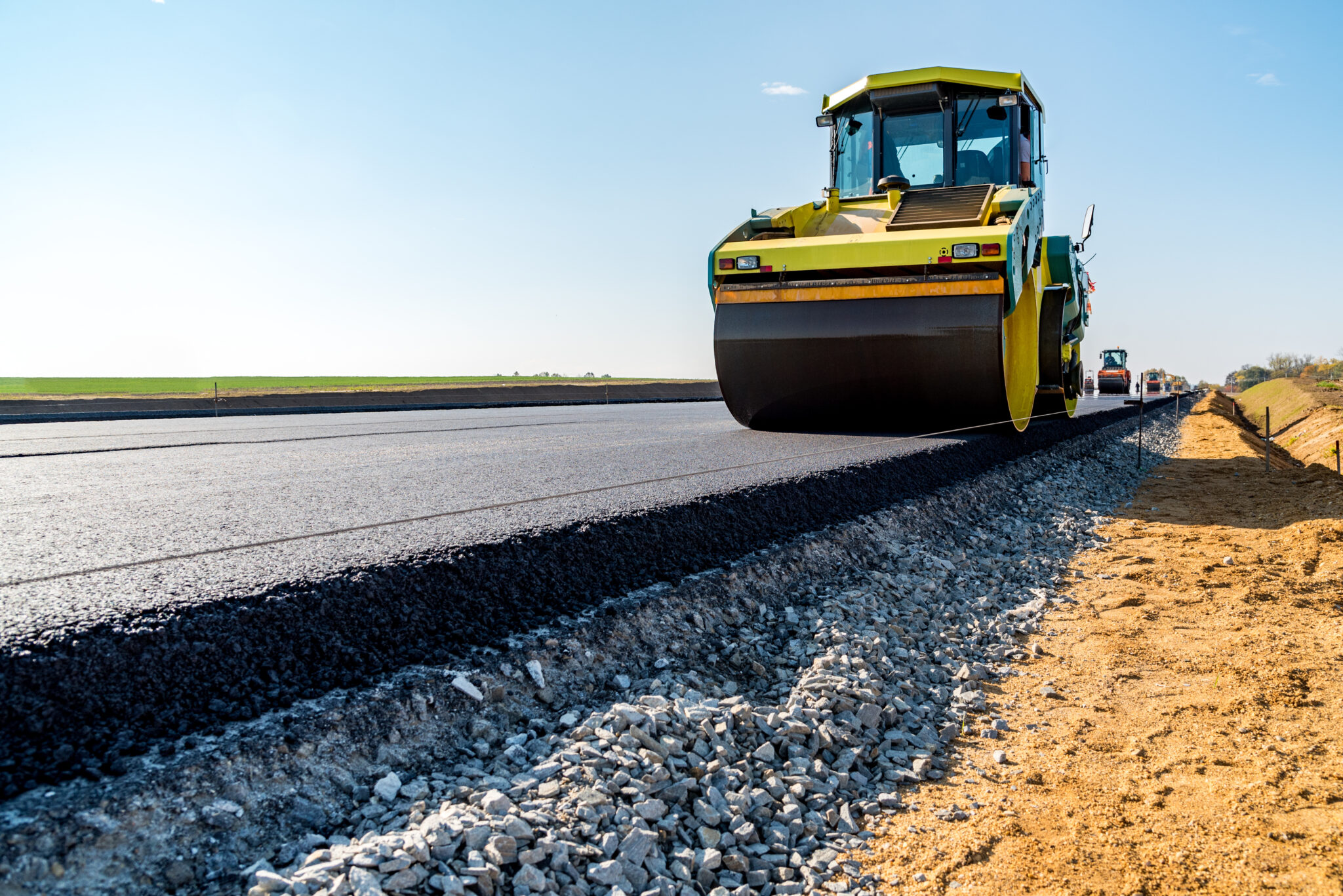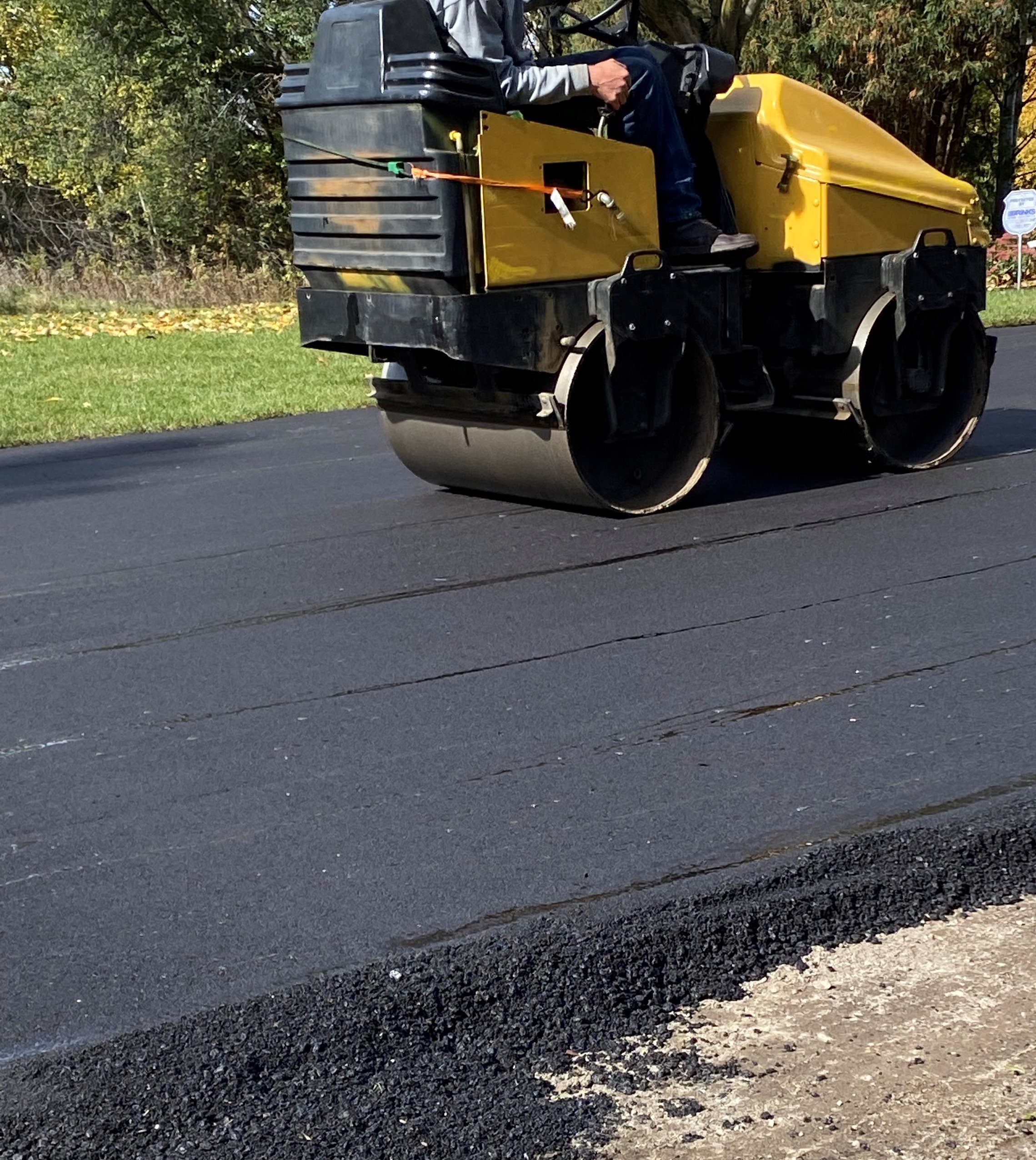Recognizing the Different Types of Asphalt Paving Available Today
In the world of building and framework, a comprehensive understanding of the various types of asphalt paving is crucial for optimal job results. From the robust Warm Mix Asphalt, designed for high-traffic areas, to the ecologically aware Porous Asphalt that assists in water management, each kind offers distinct advantages customized to certain needs.

Hot Mix Asphalt
What makes hot mix asphalt a recommended option for roadway building and repair services? Warm mix asphalt (HMA) is preferred for its resilience, versatility, and performance under differing conditions. Made up of a mixture of accumulations and liquid asphalt concrete, HMA is generated at high temperatures, normally in between 300 ° F and 350 ° F (asphalt paving acworth ga). This high-temperature application permits for optimal bonding and compaction, causing a smooth, resilient surface area that can stand up to rush hour loads and negative weather.
HMA's ability to be customized to details task demands is another significant advantage. Different gradations and solutions can be used to enhance homes such as versatility, resistance to contortion, and long life. Furthermore, warm mix asphalt can be promptly set up and available to web traffic, reducing disruption during building.
Environmental factors to consider likewise play a duty in the choice for HMA. The product is recyclable, and redeemed asphalt sidewalk (RAP) can be recycled, advertising sustainability in roadway building and construction practices. Generally, hot mix asphalt stands apart as a dependable option, efficiently giving a durable, high-performance surface area that fulfills the needs of modern framework.
Cold Mix Asphalt
Cold mix asphalt is a versatile choice to warm mix asphalt, particularly fit for details applications such as patching and surface area treatments. This sort of asphalt is created at ambient temperatures, enabling less complicated handling and application without the demand for extensive home heating tools.
Typically composed of asphalt solutions or lessenings, chilly mix asphalt can be combined on-site or purchased pre-mixed. Its properties allow it to bind well with existing pavement, making it an effective option for fixing fractures, splits, and other surface defects. It can be used in a range of climate conditions, supplying a functional choice for year-round upkeep.

Nevertheless, while cold mix asphalt is excellent for temporary fixes, it might not offer the exact same durability or resilience as hot mix asphalt under hefty website traffic problems. Therefore, it is best used for low-traffic areas or as a temporary solution up until more irreversible repair work can be executed.
Cozy Mix Asphalt
While hot mix asphalt has actually long been the criterion for roadway building and construction, cozy mix asphalt (WMA) has actually become an ingenious choice that stabilizes performance with ecological factors to consider. WMA is produced at significantly lower temperature levels-- typically between 215 ° F and 275 ° F-- compared to warm mix asphalt, which is heated up to around 300 ° F. This decrease in temperature not just lowers power intake but likewise decreases greenhouse gas emissions throughout manufacturing.
The technology behind WMA includes the use of additives or techniques that make it possible for much better workability at lower temperature levels. These can include chemical ingredients, foaming processes, or a go to website combination of both. Because of this, WMA keeps the essential properties for toughness and performance while offering a more eco-friendly alternative.

Porous Asphalt
Permeable asphalt represents a forward-thinking approach in pavement layout, prioritizing both performance and environmental sustainability. This ingenious product is especially engineered to allow water to permeate via its surface area, efficiently reducing runoff and promoting groundwater recharge. Therefore, porous asphalt is an exceptional option for locations vulnerable to flooding or where stormwater monitoring is critical.
The composition of porous asphalt differs from traditional asphalt, featuring a greater percentage of spaces that promote drain. This building not just reduces surface area water buildup however likewise assists alleviate problems like hydroplaning and enhances car traction during damp conditions. asphalt paving acworth ga. Furthermore, permeable asphalt can contribute to city heat island decrease, as it permits for better evaporation and cooling effects in metropolitan environments
In regards to installment, permeable asphalt calls for cautious factor to consider of underlying drain systems to guarantee optimal performance. Maintenance typically entails routine assessments and cleaning up to avoid clogging from debris, which can harm its permeability. On the whole, porous asphalt works as a sustainable paving remedy that aligns with contemporary ecological objectives, making it a significantly popular selection for both personal and public jobs.
Rubberized Asphalt
Rubberized asphalt is an advanced paving product that incorporates recycled rubber, usually sourced from scrap tires, right click here now into the asphalt mix. This ingenious strategy not just boosts the efficiency of typical asphalt but likewise promotes environmental sustainability by recycling waste materials. The addition of rubber improves the versatility and toughness of the pavement, making it immune to cracking and deformation under varying temperature level problems.
One of the substantial advantages of rubberized asphalt is its capacity to lower sound air pollution. The rubber bits absorb audio, leading to quieter highways, which is specifically advantageous in city areas. This type of asphalt gives enhanced skid resistance, boosting safety and security for automobiles.
Rubberized asphalt also adds to expanding the life-span of road surfaces, leading to decreased maintenance prices gradually. This durability is especially important for high-traffic locations where damage are increased. In addition, its resistance to dampness infiltration helps lessen the danger of water damages, further boosting longevity.
Verdict
In recap, the range of asphalt paving types-- Hot Mix Asphalt, Cold Mix Asphalt, Cozy Mix Asphalt, Porous Asphalt, and Rubberized Asphalt-- each accomplish distinct features that deal with varied construction and upkeep demands. These alternatives not just boost road top quality yet likewise add to sustainability with minimized energy consumption and enhanced water monitoring. Recognizing these differences is crucial for choosing the suitable asphalt type, eventually guaranteeing reliable and reliable paving remedies in various settings.
From the robust Warm Mix Asphalt, designed for high-traffic locations, to the eco aware Porous Asphalt that promotes water administration, each type presents distinctive benefits customized to particular demands.Typically made up of asphalt solutions or cutbacks, cold mix asphalt can be blended on-site or acquired pre-mixed.While warm mix asphalt has actually long been the criterion for road construction, cozy mix asphalt (WMA) has actually emerged as a cutting-edge choice that balances performance with ecological considerations.Rubberized asphalt is an innovative paving material that includes recycled rubber, typically sourced from scrap tires, right into the asphalt mix.In recap, the range of asphalt paving types-- Hot Mix Asphalt, Cold Mix Asphalt, Cozy Mix Asphalt, Porous Asphalt, and Rubberized Asphalt-- each fulfill distinctive functions that provide to diverse building and upkeep demands.